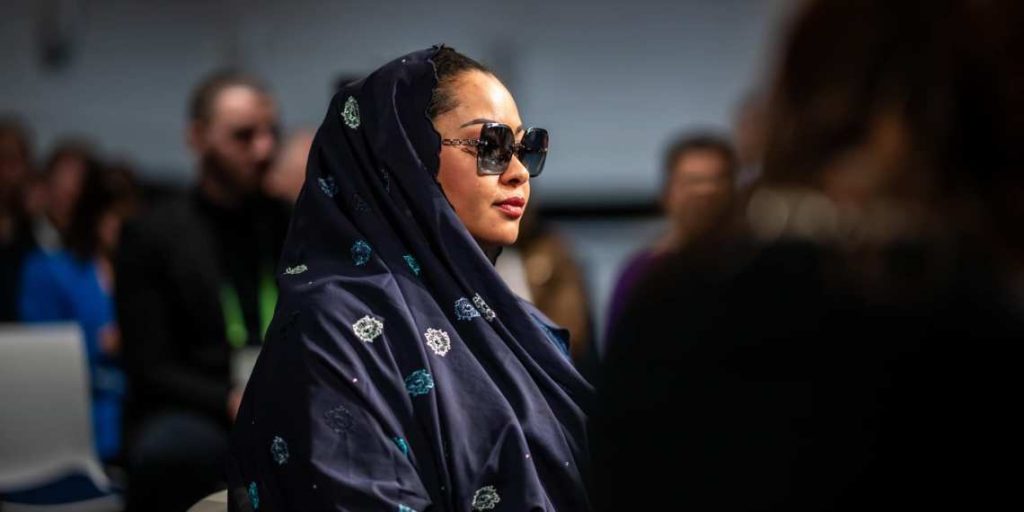
Daniel Otera
A sharp divide has emerged between leading rights advocates and a coalition of women’s groups following the Federal High Court ruling that ordered the reinstatement of Senator Natasha Akpoti-Uduaghan to the National Assembly after her suspension by the Nigerian Senate.
While the Socio-Economic Rights and Accountability Project (SERAP) has demanded full compliance with the court’s decision, a vocal bloc of women-led civil society organisations has urged the Senate to appeal the judgment, describing it as a “dangerous precedent” that threatens parliamentary discipline.
On Tuesday, SERAP issued a public statement via its official X handle, calling on Senate President Godswill Akpabio to comply with the court’s order and restore Senator Akpoti-Uduaghan to her legislative duties.
“Senate President Godswill Akpabio must immediately obey the court order and ensure a smooth return of Senator Natasha Akpoti-Uduaghan to the Senate today or any other day of her choosing,” the organisation said.
“She should never have been suspended in the first place. Her suspension is a grave violation of the Nigerian Constitution 1999 [as amended] and international human rights treaties to which Nigeria is a signatory.”
SERAP added that failure to obey the ruling would weaken the judiciary and erode the rule of law.
“The Senate should be setting an example by obeying the court order, upholding the rule of law, and protecting the integrity of the country’s legal system.”
Delivering the judgment on Friday, Justice Binta Nyako of the Federal High Court, Abuja, ruled that the Senate had no constitutional authority to suspend Senator Akpoti-Uduaghan for six months. The court described the action as excessive and a violation of the rights of her Kogi Central constituents.
The ruling invalidated portions of Chapter 8 of the Senate Standing Rules and Section 14 of the Legislative Houses (Powers and Privileges) Act, stating that they fail to specify the maximum allowable period for suspensions.
“Since lawmakers are constitutionally mandated to sit for 181 days per legislative year, suspending a senator for six months is effectively stripping constituents of their right to representation,” Justice Nyako ruled.
The court directed her immediate reinstatement and imposed a ₦5 million fine on the senator for breaching an earlier gag order related to the matter.
The Coalition of Concerned Women for Legislative Integrity (CCWLI), representing over 1,000 women-focused groups nationwide, strongly disagreed with the ruling and called on the Senate to challenge it in court.
Barrister Nana Amina Abdullahi, President of CCWLI, stated:
“The coalition is not opposed to judicial review, but we believe this judgment dangerously undermines the Senate’s authority to enforce internal discipline.”
She warned that failure to appeal could erode the chamber’s power to maintain order.
“If left unchallenged, the ruling could open the floodgates of indiscipline, misinformation, and abuse of legislative privilege.”
Reacting to claims that the people of Kogi Central were denied representation, Abdullahi countered:
“The people of Kogi Central were not suspended their representative was. And they deserve better than a lawmaker whose interventions often descend into provocation rather than policy.”
The Natasha Akpoti-Uduaghan case adds to a growing list of court interventions in legislative suspensions since 2010. According to a review by Nigerian Tribune, at least six lawmakers have faced suspension at federal or state level, with four of those decisions reversed by courts.
Senator Ali Ndume (2017) Suspended for six months; reinstated by court.
Hon. Abdulmumin Jibrin (2018) Suspended over budget allegations; suspension nullified.
Senator Ovie Omo-Agege (2018) Suspended for opposing electoral reforms; court overturned it.
Hon. Rifkatu Danna (2012) – Suspended by Bauchi Assembly for challenging local policies; reinstated on appeal in 2017.
Renowned rights lawyer, Femi Falana (SAN), observed:
“Every legislative suspension imposed since 2010 that was challenged in court has been reversed. It proves the point that parliaments are not above the Constitution.”
Former Speaker of the Kwara State House of Assembly and constitutional law professor, Ali Ahmad, warned that excessive judicial interference in legislative matters could undermine the doctrine of separation of powers.
“It is an aberration,” Ahmad said in an interview reported by Daily Trust.
“Sections 4, 5, and 6 of the Constitution grant each arm of government its distinct powers. When a court stops the Senate from performing its constitutionally guaranteed powers, it’s not done anywhere. Our courts should be mindful of granting interim orders. It is an abuse of judicial powers.”
Senator Akpoti-Uduaghan’s suspension has attracted national attention, not only for its legal implications but also for what it represents in Nigeria’s political gender landscape. Her legislative activism especially on gender equity, public infrastructure corruption, and insecurity in Kogi State has made her a high-profile figure.
According to a joint statement reported by Independent Nigeria, the Conference of Nigeria Political Parties (CNPP) and the Coalition of National Civil Society Organisations (CNCSOs) described her suspension as “a politically motivated act aimed at silencing a lawmaker who filed a sexual harassment complaint against Senate President Godswill Akpabio.”
Public discourse has also shifted toward the challenges facing women in politics. A BBC report observed that the suspension “dominated conversations across Nigeria,” raising broader questions about institutional bias and resistance to assertive female voices in governance.
While some critics argue that the senator’s style in the red chamber lacked decorum, others see the suspension as disproportionate and targeted.
While SERAP and other civil rights groups hail the ruling as a victory for democracy, CCWLI remains adamant that the judgment must be contested.
“We are calling on the Senate to file a prompt appeal not just in defence of the Natasha case, but in defence of its institutional dignity,” CCWLI concluded.
